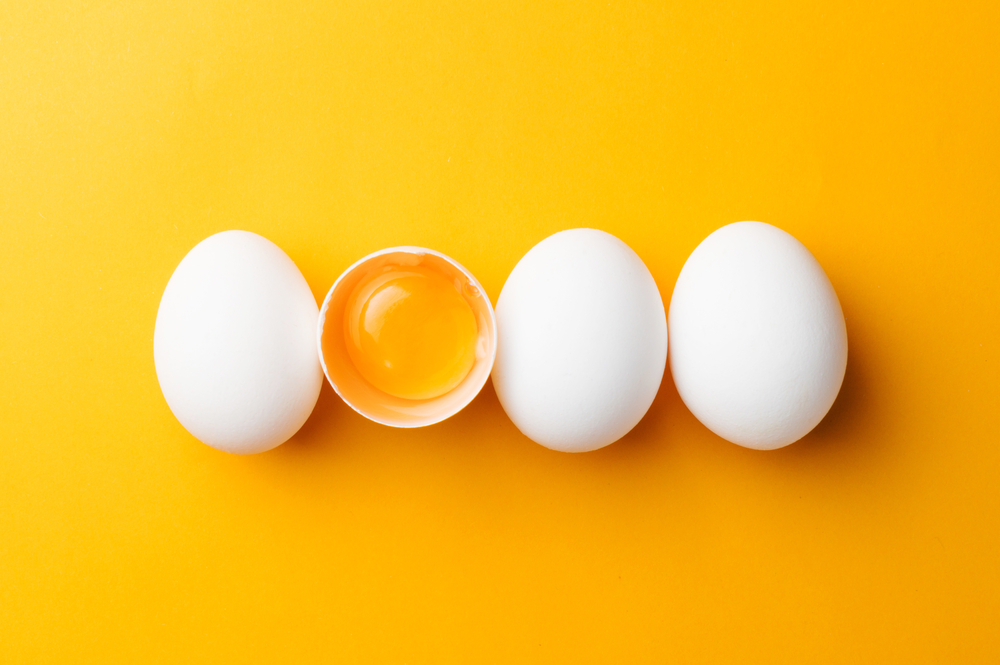
The Benefits Of Egg Protein
The list of benefits from egg protein is a long one. Egg protein can be a powerhouse of nutrition. Eggs are cheap, easy to prepare and are loaded with protein and B Vitamins. So, just how good are they?
Egg Protein Content
The primary reason for the consumption of eggs is that they are a lean, cost effective source of protein. A medium egg has between 6-7g of protein, although it also contains approx 4g fat, 0g carbs and only 66 calories. Not only are they nutrient dense, the protein available in eggs is one of the highest of all the animal sources.
The Biological Value of Egg Protein
 The Journal of Sports Science and Medicine (2004) defines the biological value of protein as: “a measurement of how efficient the body utilizes protein consumed in the diet”. The higher the figure, the better the protein source is at providing all the essential amino acids. Not only do eggs contain all the essential amino acids but egg protein has a BV of 100 making it the best protein source available. When comparing the BV of other sources of protein, egg protein is the ‘gold standard’. Egg protein is also high in the muscle building BCAA’s leucine, isoleucine and valine. They allow the body to maintain muscle, while aiding in the building of new tissue. They have been reported to help in the fat burning and recovery processes.
The Journal of Sports Science and Medicine (2004) defines the biological value of protein as: “a measurement of how efficient the body utilizes protein consumed in the diet”. The higher the figure, the better the protein source is at providing all the essential amino acids. Not only do eggs contain all the essential amino acids but egg protein has a BV of 100 making it the best protein source available. When comparing the BV of other sources of protein, egg protein is the ‘gold standard’. Egg protein is also high in the muscle building BCAA’s leucine, isoleucine and valine. They allow the body to maintain muscle, while aiding in the building of new tissue. They have been reported to help in the fat burning and recovery processes.
Egg Protein & Energy
Not only is egg protein the highest BV of all the animal proteins, eggs are also loaded with B Vitamins, especially B2, B12 and Biotin (aka B7), giving sustained energy. Egg protein (and the absence of carbohydrates in eggs) does not cause blood sugar levels to rise and peak quickly, and then ‘crash’. This helps to minimise overeating as the blood sugar levels maintain stable, perfect for anyone on a calorie restricted diet for weight management.
Egg Protein & Health and Wellbeing
Eggs contain Lecithin. This is a fatty substance found in both animal and plants sources. Its main role is as a vehicle for fatty acid transportation. This plays a vital important role in embryonic development, while also slowing memory decay and preventing Alzheimer’s disease. It also protects the human body against atherosclerosis, hypertension, thrombosis and ulcers. It was thought that lecithin was also able to aid in fat loss, however was shown to be unlikely in recent studies – “there is no scientific research that shows that lecithin aids in fat loss”. However, although the lecithin in eggs does not eliminate subcutaneous fat it was shown to “stop fat clogging the cardiovascular system”. Therefore egg protein, thanks to it’s lecithin content, can encourage heart and lung health.
Egg Protein & Strength
A study entitled ‘Egg Protein as a Source of Power, Strength, and Energy’, published in 2009, shows that egg protein can help in increasing muscle strength and size. Not only does an egg contain 6 grams of muscle building protein, but they are high in the essential amino acid leucine. This EAA is responsible for not only increasing the ability of our muscle to use energy, but also increases the post-workout recovery process.






No Comments yet!